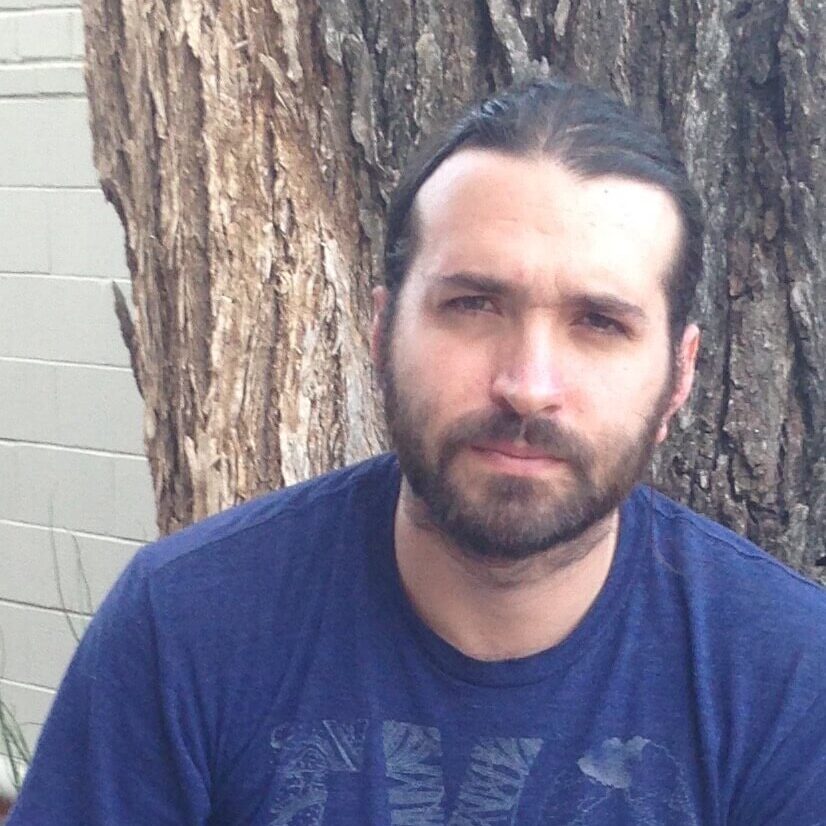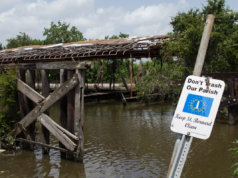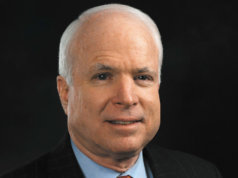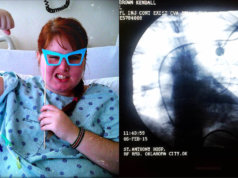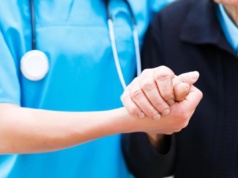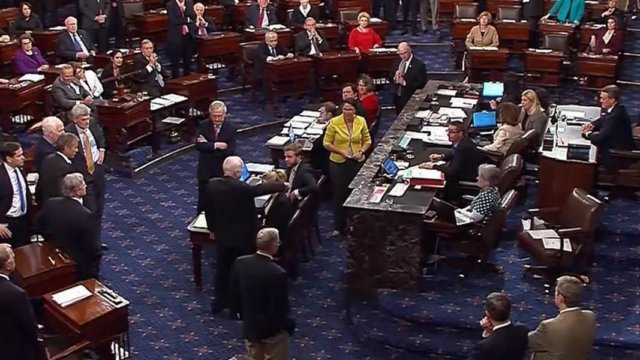

Just not having health insurance right there, that’s a really horrible thing to face — that’s practically suicidal as you approach middle age. What are you supposed to do? Somebody, your wife or you, has to get a job. The idea that you can live off the grid and just do your own thing is a very American idea — that you should be able to do your own thing, if you want to, if you’re willing to pay the price for it. I think the price has gotten higher and higher.
— American novelist Dana Spiotta, to the Los Angeles Times, Aug. 3, 2011
AUSTIN — I was a cancer caretaker for my mother, Virginia Marroquin, for five years. This duty caused me to redirect my sense of self and what it was I was to do in the world. It caused me to see her as one of the people who had slipped through the cracks of the status quo, pre-Affordable Care Act health market in the United States.
My experience as a caretaker went by as a blur. I do remember, though, a focus — the beginnings of a larger perspective — happening for the first time in Shreveport, Louisiana, where I’d dropped mom off to receive more comfortable physical care at my grandmother’s house.
At grandma’s kitchen table, I read in the Shreveport Times the obituary of a woman in her 50s. She was wearing a pink shirt and one of those bedazzled caps. Blonde, grinning. It looked like the picture had been taken in a bar. One of the beloveds in the obit’ commented on the deceased as someone who could be counted on to be in good spirits, to have a good time. I had taken this woman’s illness to be a result of her party-going lifestyle. Part of this guessing was personal (I was now sober for fear of consequences), and mom was hardly a drinker. She was in envious good health upon her cancer diagnosis.
I still noticed, through mother’s cancer, that middle-aged women at large were at risk.
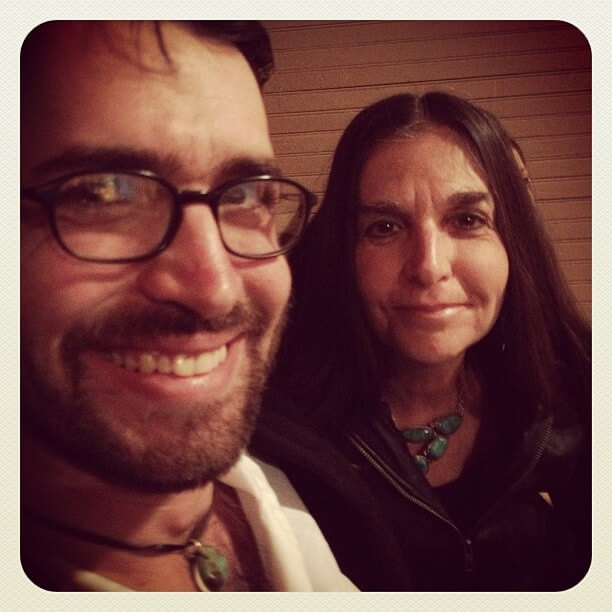
As aging employees get pushed out, health care worsens
Both of my parents had difficulties once employer-provided health care was no longer an option. As computer/scheduling changes in counseling for public schools rendered my mom — a skilled healer but technological luddite — a liability rather than an asset, she transferred to contract-based counseling and, consequently, a lesser health plan.
I write knowing how much symbolic power President Barack Obama’s efforts toward universal health coverage meant to her. We would intently and intensely watch all the developments on CNN, consoled happily by Don Lemon’s suit choices. We watched Joe Biden’s comment, “This is a big fucking deal!” in March 2010 as Obama signed the Affordable Care Act. We observed the subsequent John Boehner standoff in October 2013.
Similar to changes in my mother’s career, my dad eventually left his job after years at a Sears call center. (Sears, whose stock increase in the past 15 years is up only 2.2 percent to Amazon’s 8,000-plus percent). He successfully enrolled in a plan on HealthCare.gov after Blue Cross Blue Shield had previously refused his application based on a pre-existing condition (a minor “cancer” called basal cell carcinoma, for which he had undergone surgery years prior).
My father is a rule-following social conservative (in manners; he may have voted on both sides of the political in his life for all I know). I do know, though, that he quietly supported the derisively labeled “Obamacare” and was more than thankful for the help that he got.
The ACA may not be perfect, and many struggle with the premiums. Lawyers and psychologists with families, for example, have suffered higher-than-average premium increases, and some insurers will just opt out of some states in the coming years, a terrible uncertainty.
But it helped me. After my mother succumbed to cancer, I moved to Texas to pursue teaching and, on the side, the arts. I have been able to get about $200 in monthly ACA subsidies. I got pills for my gastroesphogeal reflux disease, which helped me during my job search. For good or ill, I also took advantage of the community clinic’s acupuncturist.
CBO: 1 in 5 under 65 could be uninsured by 2026
Like the lawmakers themselves, I don’t see last week’s vote opposing the “skinny repeal” of Obamacare as some kind of Super Bowl victory — though I smiled and felt relief.
Just as mom and I had watched Don Lemon dozens of nights in our apartment, I turned back to him, coming out of hermit mode, to find a true surprise when Sen. John McCain (R-Arizona) voted down the hasty bill proposing skinny repeal of the Affordable Care Act. A political genius may have 33 motives in their head we don’t know about, and I believe McCain did — of which vanity and cunning played a part. His flourish was rendered all the more dramatic by his previous vote to open debate, all while displaying a forehead gash from brain cancer surgery. He had, like many, returned from the land of the sick. His ultimate vote was sturdy and true, though, displaying a kind of quick and rare righteousness rarely seen on television.
The bill that was to be did not work. USA Today reported that, because of GOP-proposed Medicaid cuts and the elimination of private insurance subsidies for people who lack employer-provided coverage, the number of uninsured people would have risen by 32 million in 10 years. By 2026, about 21 percent of Americans under age 65 could have been without insurance, compared with a projected 10 percent if the ACA remains in place, according to the Congressional Budget Office.
ACA repeal vote exposes ‘fundamental meanness’
While I personally and politically want to say that the Affordable Care Act would have prevented mom’s cancer from advancing, I must also spiritually turn to my grief text of the moment, On Grief and Grieving by Elisabeth Kubler Ross:
… in the case of cancer people are often faced with multiple choices for treatment options, an arena that is a perfect breeding ground for blame … (But), we have no control over certain situations, and believing that we do is a form of arrogance. It is not for us to ask why someone dies or why someone lives. Those decisions are left to God and the universe.
This grief truism validates the large part of me that does not want to talk about health at all. Yet I am still haunted by what Obama called the “fundamental meanness” of what Republicans in the House and Senate and, late to the party, President Donald Trump pursued with such passion. For whom do they speak? And, as they speak so grandly, who remains silent?
The personal is political
For the first time, I see the aphorism, “The personal is political,” as a truth. Though to find truths, during my hard time, I usually turned to literature rather than politics (or most any other place).
One author, Dana Spiotta (quoted above), wrote a striking book called Stone Arabia, a book of American illness disguised as a novel about rock and roll. She speaks through a protagonist named Denise. While Denise observes her beloved brother’s oncoming illnesses (and that of his friends), she starts to see a trend in the obituaries in her newspaper:
Very young people mostly die in accidents. Most have not lived long enough to accomplish anything notable, and they rarely get full obituaries. So the saddest obituaries are the premature but not uncommon middle-aged ‘young’ people, say between 35 and 50. These folks do indeed die and I always took note:
47, ovarian cancer
53, heart failure
58, complications from pneumonia
54, breast cancer
46, self-inflicted gun shot
59, pancreatic cancer
38, motorcycle accident
48, breast cancer
58, overdose (“yet to be determined,” “toxicology report,” and “bottle of various prescription medications”)
35, drowning
46, died in a fall
57, sudden heart attack
50, heart attack suspected
42, heart and kidney failure
45, car accident
59, complications from a brain hemorrhage\
49, killed himself by hanging
59, lung cancer
40, sudden cardiac failure
50, ovarian cancerI think anyone would get the picture here. No peaceful, natural deaths. It was either bad luck or bad living. Or, I guess, a bad attitude (the suicides).
I coincidentally read this passage while mom lay ill in Louisiana, and I had nearly passed out from caretaker burnout in OKC. It was one of many passages in literature that would give me comfort and pain in the days and months to come.
More recently, as I read the headlines concerning the nation’s health care, I wonder how many others carry shame about their illness (or support to the ill)? To the extent the public servicemen and campaigners are committing a great crime, it is in exploiting this pride and privacy in people.
I know this privacy and pride well but react against it now to say that decent health care should be available to all U.S citizens.








